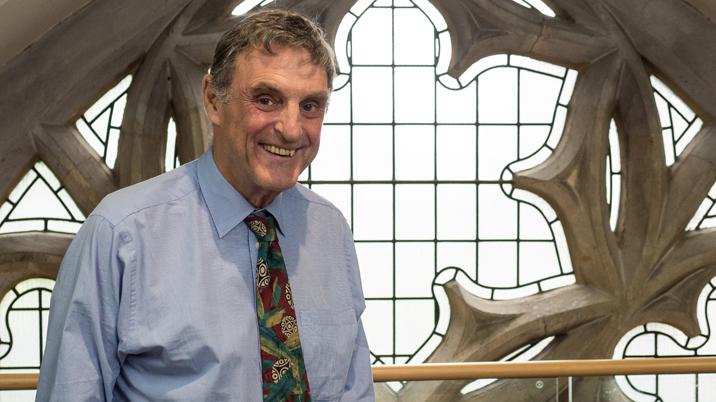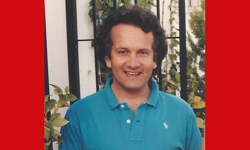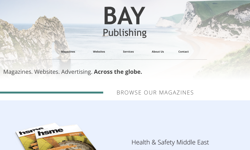
No publisher has escaped the pandemic crisis unscathed. But Mark Allen Group, the family-based company with 100+ magazine brands across twelve different sectors, has fared better than many – in no small part thanks to the engine of the business’s growth over the past decade: its acquisitions strategy.
With print and digital brands, plus 250 exhibitions (in a typical non-Covid-19 year) across a diverse array of sectors, Mark Allen Group has come a long way since its proprietor and chairman, former newspaper journalist and editor Mark Allen, founded it with a management buy-out from Thomson in 1985.
A year ago, the company reported record profits up one third for the twelve months to March 31, 2019, with pre-tax profits up 35.6% to £6.8m on turnover up 18% to £51.3m – a strong position to weather the unforeseen global crisis that lay ahead.
Since then, yes, the pandemic cancelled all its events in one fell swoop as well as throwing up a host of other challenges. Yet by autumn, profitability was ahead of its ‘best case budget scenario’ – one of three (good, bad and ugly) written as the pandemic took off – though Allen is quick to stress “we are by no means out of the woods”.
“There are three main reasons why we have performed better than many,” he believes.
“First, we have a very diverse portfolio. In the past, we have sometimes been accused of having too many fingers in too many pies, but it is the range of our portfolio and different revenue streams we have created that have been incredibly helpful at this time.”
Second, the company’s acquisition of Farmers Weekly, which it completed at the end of last year, proved “a very fortunate master stroke”. A “wonderful business – one of the most iconic names in publishing, and one of our most profitable brands”, it has been barely affected by the pandemic.
“Third, we have got a superb and focused team,” he adds. “And how it has performed this year has been absolutely extraordinary – demonstrating incredible creativity and ingenuity and that can-do spirit has been very prevalent.”
As Allen has previously admitted, many of Mark Allen Group’s acquisitions have been largely opportunistic. In recent years, for example, it went from having no footprint in music to owning Gramophone, Jazzwise and Songlines.
The strategy is to acquire when it sees magazines or brands or companies it feels it can extract more value from – in particular by developing synergies around them.
And in its sights are any interesting products and good brands siloed off by bigger companies (especially those shedding their ‘publisher’ tag to re-invent themselves as ‘business intelligence providers’) where it identifies scope to turn them around through a combination of TLC and 21st century publishing good sense.
“Ten to twelve years ago, we were identified as a healthcare company and many people felt we should remain a healthcare company – the pervading orthodoxy was: focus on what you know,” Allen observes.
“And I thought that was wrong. Because if we were just focused on healthcare, we would be waiting for Godot for healthcare opportunities to arrive. So, I decided to remove those shackles and to focus on really being opportunist about what we could acquire in any single kind of market.”
Irrespective of the sector your brand is serving, publishing skills are the same, he believes.
It is the range of our portfolio and different revenue streams we have created that have been incredibly helpful at this time.
Improve & expand
“When we are acquiring titles, I look for content. And content is always the most important thing in my book – whether a magazine has the right content, or whether we can improve the content. We don’t look to make cheap options – at every single stage, we try to improve and expand on content,” Allen says.
“Also, we try to empower all the staff that are transferring. We have acquired a lot of magazines from larger companies and, to some extent, a lot have been in the departure lounge for a while – siloed off – so when we take them on, sometimes the staff are a bit demoralised.”
He continues: “The first thing we have to do is reassure the staff and try and empower them. When we are acquiring a magazine or a brand, we go through a similar format – we ask every team member to write a mission statement, because we often find some of the editorial and sales staff are not on the same platform.”
Incoming teams’ further sense of ownership over their own destiny is built through away days and workshops, from which an action plan for each acquired product is produced and then implemented.
“We tend to do things quickly,” he adds, “because the longer you leave it, the harder it is to do a plan – and the more resistance people can sometimes have. So, it’s best to strike when the iron is hot and really go for it.”
Allen makes no secret of his concerns for the publishing sector, of the difficult months that lie ahead as the world moves (hopefully) beyond the pandemic crisis. Even so, he remains optimistic for the industry in the period beyond – and, also, his own company’s chances of still reaching its £85m turnover target within the next five years.
“In the next year, I don’t think we’ll be acquiring very much – we will be focusing more on organic growth and have a number of print and online ideas for launches,” he predicts. That said, a constant lookout will be kept for the next likely purchase. “We’re always restless and ambitious to be better,” Allen admits. “We’re only half-way up the mountain.”

You can hear Mark Allen being interviewed by Ciar Byrne on a recent episode of The InPublishing Podcast, which was sponsored by Acorn Web Offset, the Yorkshire-based specialist A5 and A4 magazine printer.
This article was first published in InPublishing magazine. If you would like to be added to the free mailing list, please register here.










